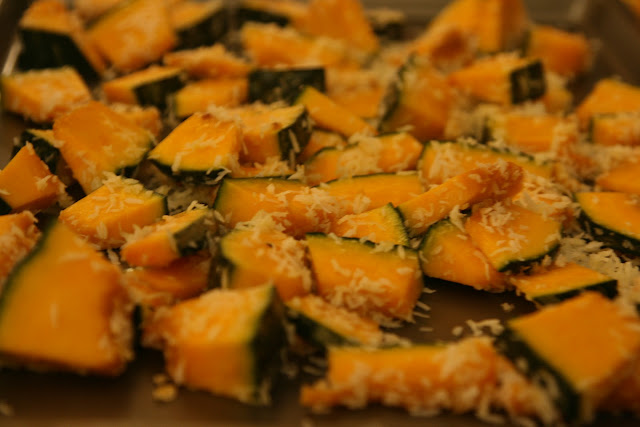'Bela' Bela Gil!
Music
Royalty descendant Bela Gil is much more than a famous last name and a pretty
face. She is creating her own path by teaching others how to live a healthy
lifestyle. Bla talked to her about food,
her cooking classes and we got a great reeducation of our eating habits.
Bla – I
learned that you started to live a healthier life and eat healthy since your
childhood and that it came from your father (Gilberto Gil). Did he impose a
more natural diet to the household or did you have the freedom to choose?
BG – My
father followed a strict macrobiotic diet for several years during the 1070’s
but when I was born he wasn’t a strict macrobiotic anymore. Of course he
maintained a healthy diet and continued to eat brown rice in his own bowl with
hashi. But he never imposed what must have gone into my plate or into my
brother’s. We were able to choose what to eat and what to drink from what was being
served and at home we always had a healthy diet similar to many Brazilian
households. We had rice, beans, vegetables, salad and a meat every day, and
sometimes pasta for dinner (my Grandfather was Italian). Of course that the
tofu, seaweed and adzuki beans were things that me and my brothers would pass.
Bla - Have
you ever driven away from your natural and healthy way of life? If so, what
were the consequences?
BG - I became a “foodie” when I
turned 14 and started to practice yoga and found that the food I was eating was
affecting my yoga practice. That was the first time that I related healthy food
to wellbeing. And from than point own, I try to follow a healthy way of living
by eating homemade food, mostly vegetarian, low in sugar and dairy, and always
exercising.
Bla - You are
finishing your studies at The Natural Gourmet Institute. What have you learned
there that you disagree with and would not apply to your everyday life? What
have you learned that you were not applying and decided to do so?
BG - I finished my studies at the
NGI in 2007 and now I’m in the last year of the nutrition program at Hunter
College. It is a good program, however it is quite challenging for me who came
from a holist approach to nutrition. At school for example we learn that
margarine is a better choice over butter since margarine in low in saturated
fat and butter is highly saturated. Well, I will always believe that something
done by nature will be much healthier than a manmade stuff, with one molecule
apart to turn into plastic.


 |
| Bela Gil welcomed Bla NYC @ her Cooking Class in the East Village |
Bla - What is
the influence of acidity on the human body?
BG - Every disease develops in an
acidic environment. So to avoid any kind of disease, especially cancer, one
must maintain the body slightly alkaline. Unfortunately, modern food has become
very acidic and the body response to an acidic food is to balance it out by
removing calcium (alkaline mineral) from the bones to turn the blood more
alkaline. So if you have an acidic diet, you are more prone to osteoporosis,
weak teeth, bones and nails, and cancer. The human blood is already slightly
alkaline but within this alkalinity there is a range in which it can become
more acid or more alkaline.
Bla – I
suffered from Hepatitis type B when I was 9 years of age. Having almost died
from it, I am very conscious about what can damage my liver (Tylenol). What
other eating habits/foods you think can damage the liver and the
gastrointestinal system?
BG - Medicines, drugs, alcohol and
some foods damage the liver. So food wise I would say that alcohol and sugar
are the worse foods one can give to the liver. Today, thanks to Dr. Robert Lustig and many
other researches on the subject of sugar, we know that the body metabolizes
sugar very differently than it does with pure glucose or starch. Refined sugar
(sucrose) is a disaccharide composed of 50% glucose and 50% fructose. While
glucose is readily used by the entire body, fructose has to be primarily metabolized by the liver, which then converts the fructose to
a more absorbable form. If eaten in excess, the liver converts the excess
fructose into fat. Therefore, too much fructose can lead to the condition known
as fatty liver. So sweetened beverages, soda and industrialized fruit juices
are bad choices for the liver. For the gastrointestinal track, any food that
the body doesn’t digest well will be harmful for the digestive system. Some
people for example can’t digest milk, others don’t digest well meat, fat,
gluten or uncooked foods. So those foods are harmful for their digestive
health.
Bla - Today,
we live in a society that condemn carbohydrates, fatty acids, glucose, certain
types of protein, etc. What do you think about it?
BG - Everyone who follows a strict
diet that restrict certain food, it could be meat, dairy or sugar assume that
if he or she lives much better without them, everyone else will too. But not
necessarily! If meat doesn’t work for me, it can work for you. People tend to
generalize and this is wrong. Not everyone digest food the same way. As a
popular saying says: “One man’s meat is the other man’s poison. That’s the
lesson.
 |
| Bela Gil 's Cooking Class in the East Village |
Bla - Are
foods labeled “light” good for you? If not, how so?
BG - Not necessarily, the term light
simply means that there is less of a certain nutrient in the food then the
original one. And they usually have fewer calories as well. They can reduce the
fat content, or the sugar, or the sodium content in a food and label it light.
But this process doesn’t make a food healthier, because they use highly process
material such as artificial sweeteners… Or when they want to make a food less fat
they will add more sugar to it to compensate the lack of flavor. And if you
take a look at the obesity and diabetic chart in the US, you can see that after
the 1980’s the rate of these two epidemics sky rocked due to the addition of
sugar in fat free products.
Bla - Is there
a good sugar and a bad sugar?
BG – I would rather distinguish them
as nutritious and non-nutritious sugar. A nutritious sugar is one that provides
nutrients along with carbohydrate, and a non-nutritious sugar is one that
provides nothing else besides calories. For example: sweet potato vs. soda.
Bla - Women,
during their menstrual times, crave sugar more than normal. What can be a
healthy solution to satisfy cravings?
BG - If the person is not sick and
don’t require a diet restricted of sugar I could say that he or she can satisfy
her craving with raw honey and molasses.
I believe that white sugar and its codenames such as evaporated cane
juice, brown sugar (in the US), raw sugar are types of sugars that should be
avoided by everyone, including during PMS. And if nothing will satisfy your
craving try a cake made with maple syrup, or a vegan ice cream.
Bla - I have
found out that you mostly cook with coconut oil. What are the properties of it
that makes it healthier? Can you cook anything with it?
BG - Coconut oil is a special fat because
of its chemical/molecular structure. Coconut oil
is rich in medium chain triglicerides or MCT’s, instead of the long chain
triglicerides that most oils and fat have. The long chains are more difficult
to digest and therefore are stored in the body
as fat. In contrast, the MCT’s in
coconut oil are smaller molecules, rapidly broken down
by the the digestive system and immediately burned by the liver for
energy. Like carbohydrates, but without the insulin spike. That
means less fat deposited in fat cells and
more fat being used for energy. So it
can actually help you become leaner. Coconut oil also has another
positive factor in weight loss. It can be used in smaller quantities because of its lower level of
viscosity, it better integrates the seasonings flavor with the food, so you can use less of it.
On top of all that, coconut oil has anti-viral, anti-bacterial and
anti-protozoa properties.
Bla - I
noticed that coconut oil tends to solidify in cold temperatures. Is it Ok to
leave it like this or is there a special way that it should be handled?
BG - Yes, you can leave it in at
room temperature or in the fridge. I tend to leave mine at room temperature.
Bla - Why are
you an adept of almond milk? Why is it healthier than others? I myself am
allergic to nuts, what is the alternative?
BG - First of all, we do not need to
drink milk to assure a healthy diet. Secondly, nearly 2/3 of the world population
is allergic to cow’s milk. And lastly, after pasteurization, the milk becomes
very acidic, so instead of providing calcium for bone formation, it takes
calcium out of from the bones to balance the acidity. It becomes a high source
of beta-lactose (milk sugar), which causes cavities in bottle fed children. And
it becomes very allergenic. The nut milk don’t have any of these and you can
make at home very easily with any nut or seed, or both.
If you are allergic to nuts, try raw
milk or goat’s milk. But very little.
Bla - Are
there healing types of foods?
BG - Every food when prepared right, eaten at the right time
and by the right person is a healing food!
Creative Director Interview: Mirella Afonso BlaPost BlaGirls
Interview by BlaGirl: Márcia Schwarz Perel
Images by BlaGirls BlaPost via Sandro Gomes /Bla NYC
Images by BlaGirls BlaPost via Sandro Gomes /Bla NYC















Comments
Post a Comment